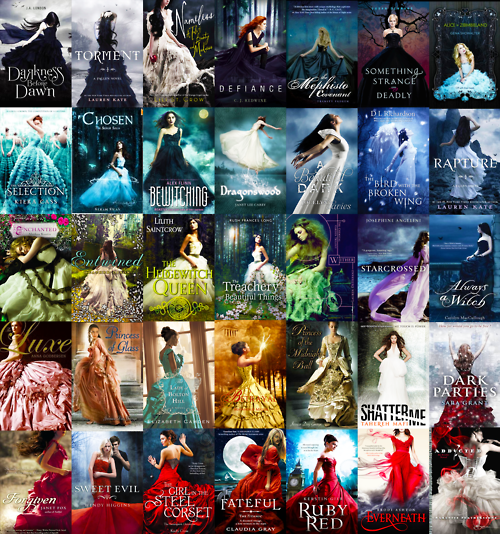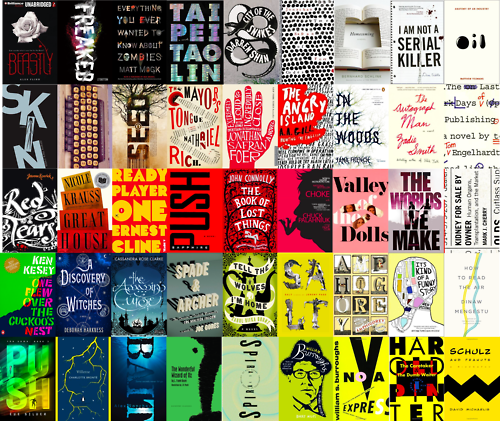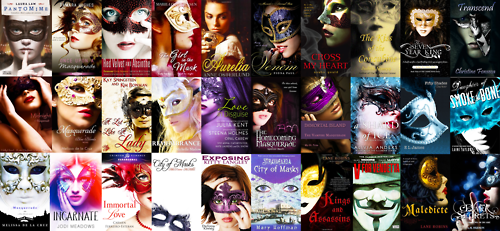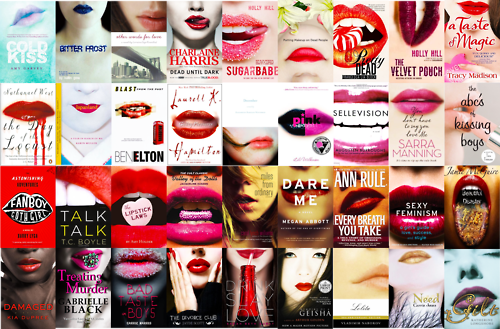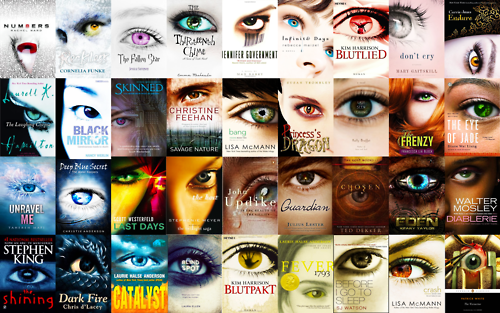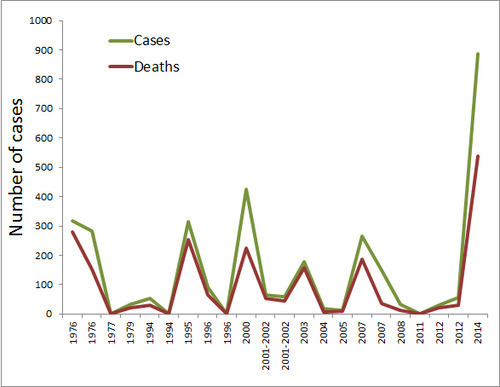Seth Fishman's Blog, page 8
August 10, 2014
mishawinsexster:
Book Cover Tropes
August 5, 2014
mar-see-ah:
What I Read in July
The Secret History by Donna...
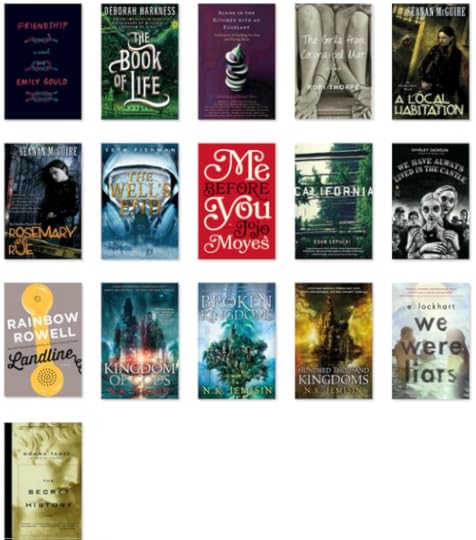
What I Read in July
The Secret History by Donna Tarrt
We Were Liars by E. Lockheart
The Hundred Thousand Kingdoms by N.K. Jemisin
The Broken Kingdoms by N.K. Jemisin
The Kingdom of Gods by N.K. Jemisin
Landline by Rainbow Rowell
We Have Always Lived in the Castle by Shirley Jackson
California by Edan Lepucki
Me Before You by Jojo Moyes
The Well’s End by Seth Fishman
Rosemary and Rue by Seanan McGuire
A Local Habitation by Seanan McGuire
The Girls from Corona del Mar by Rufi Thorpe
Alone in the Kitchen with an Eggplant edited by Jenni Ferrari-Adler
The Book of Life by Deborah Harkness
Friendship by Emily GouldSixteen books in July. I was so busy this month, but weirdly with a bunch of downtime - subway rides and hours in coffee shops because I’m early to classes I’m going to teach and suddenly I’m back on track with my reading goal for the year.
I really enjoyed everything this month - the exception being the final part of Deborah Harkness’ All Souls Trilogy.
But. Donna Tarrt’s Secret History was wonderful, We Were Liars was delightful and unexpected, the 100,000 Kingdom trilogy had a delightful mythology and was full of people of color. Landline was not my favorite Rainbow Rowell, but I still liked it. We Have Always Lived in the Castle was very Grey Gardens and I loved that. California was a creepy, creepy dystopian horror story that shows how something like the Handmaid’s Tale could start, Me Before You was something I resisted for years but was a delight. The Well’s End is a Colorado story that is part Red Dawn, part dystopia, part fancy prep school story and all fantastic. Seanan McGuire’s series about a private detective that passes for human but is half fairy is fun - like a supernatural Stephanie Plum. The Girls from Corona del Mar was so interesting but I think it was trying to push a world view and I don’t really ever appreciate that - even though I’m not quite sure what that worldview is. Alone in the Kitchen with an Eggplant is required reading for anyone who likes food or cooking or food writing. Friendship was not at all what I expected and I devoured it in less than 3 hours.
Books in 2014: 60. On pace for 103.
I write reviews of all my books on GoodReads! Be my friend there.
Previous:
June
May
April
March
February
January
2013
2012
July 28, 2014
emilyerock:
strandbooks:
Found in a book: a letter from Random...
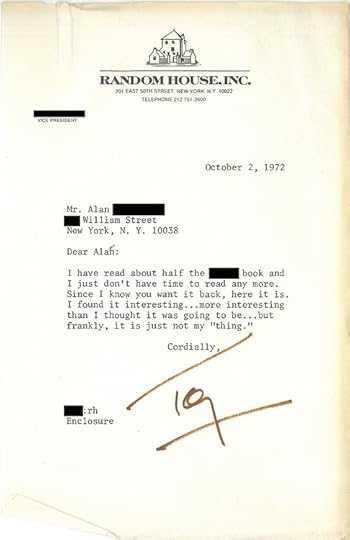
Found in a book: a letter from Random House staff member, 1972.
Frankly, it is just not my “thing.”
Got my third rejection yesterday, y’all
July 27, 2014
Literary Agents and Self Published Writers and a Bit about Amazon/Hachette too.
I think we’re looking at things way way too black and white. Most writers want to tell good stories and want to be successful enough to continue to do so. Most editors are not grouchy uninspired robots (though surely, there are a few), they are enormous lovers of books and writers and spend their entire life trying to build libraries. Editors don’t make money; even the top dogs in the field hit a ceiling compared to other industries. These people are caring and trying and often work in an established corporate culture that makes it harder for their ideals to coincide with their actions. There are plenty of issues with the publishers, but plenty of really wonderful things as well.
I’d say briefly, as an agent and writer, that the biggest problem right now in the debate between Amazon and Hachette is that the third party, writers, are not really at the negotiating table. Writers are divided and giving both sides fuel to stick it out. What’s the issue? A few things, though the most clear is compensation from ebook royalty. Right now, the Publishers DO get too much. Most authors make 25% net royalties on their ebooks and that’s not enough. Why do you think traditional publishers are weathering the storm? They’re raking it in on ebook royalties. But that doesn’t mean that Amazon should be getting more either. Authors should be getting more from Publishers and traditional authors and agents know this and we’re working on it, knocking on the ceiling and I can bet you that there are plenty of ‘big’ authors who already receive more than 25% just like I can say from firsthand experience that some big presses are offering escalators on ebook royalties too. It’s not a static thing, it’s something we are fighting for.
To the point, which I’ve admittedly strayed from (so much to talk about!), I believe that agents and self-published writers aren’t at odds at all. Many to most big self-published (SP from now on) authors have agents working for them in some capacity, either selling their books traditionally or their foreign or their film or just helping. The reason being is that there’s a common misconception that the agent is only there to sell a book. Any agent should be able to sell a good book (though sadly, that’s not 100% true), what makes an agent worth her or his 15% is the OTHER stuff they do. Foreign, Film, contract negotiations, marketing help, editing, cover design, publicity help, short story placement, blurb finding, going to your wedding and becoming life-long friends. Remember, editors leave authors ALL THE TIME but agents stay - if an editor leaves a publishing house, the author is stuck, but when I left my first agency to go to The Gernert Co., I took ALL of my clients with me. It’s the longer more significant and real relationship.
With that in mind, I think it’s important to know that there are different agents and different writers with different goals and techniques and styles. I, for one, am in the business of loving what I rep. I think most agents are. I will NOT take on a book if I don’t like it but think it’s going to sell lots of copies (though I’d be lying if I didn’t say I learned that lesson the hard way - fact is, you’re a better agent to the books you care about). Some people and some places do. But my aim, my goal, is to find the books I love and make them even better and then share them with the world.
When I see all the self-published books doing well, I don’t think that’s a problem at all. The thing I’m afraid of is not that you can make money doing this, or that I will be out of a job, it’s that I’m afraid the writing is bad and that the ease at which a writer can now SP will lessen a writer’s natural growth. What do I mean by that? Well, it took me 4 books to get published. I’ve been writing forever. Practicing, getting better, and when I think about the early books I wrote I shake my head in embarrassment (a healthy shake of the head). My book could have done better, sure. Maybe I should have self-published it! But that’s not exactly the point. What worries me about SP is simply that good books are published that often could be great.
Now now now, I don’t think agents/editors are the answer to that completely. I think good writer groups and friends and even trial and error while SPing can make you a better writer. But I’m worried people aren’t doing that. I see queries all of the time that really really need work and if those writers just put their manuscripts up online, in the bad shape they are in, even if they sell some copies I honestly don’t believe that’s the best for the world. Of course, and again, I see some problems with what I’m saying. 50 Shades of Grey, for instance, is not everyone’s favorite book but damn it sold well. And you know what, Knopf published it and made tons and was able to use that money to buy other good books etc. etc. What right do I have to say that if people are buying books who cares if they are good? And what about all the crappy books traditional publishers are publishing? It’s not like the gatekeepers stop bad books from making it to the table. All true. For me, I’m speaking way more about myself as a reader. I want to go to a bookstore, be it virtual or physical, and find good books and that’s what I care about.
Every week my assistant and I check out the top of the Amazon SP list. We look at those books selling lots of copies or with tons of reviews and we read the first page or two and for the vast vast majority of them the writing is really rough and I honestly have no idea what they are doing on the list aside from good covers/marketing/ideas/blurbs/etc. It’s frustrating and confusing, and probably some of my objective reading quirks, but it’s still me following the simple rule of ‘find what you love.’ The SP market, though, has given me a new place to LOOK for authors and for that I’m grateful. I love Hugh Howey’s books. I’m not 100% sure that I agree with everything he says about the industry but his recent piece on how the traditional publishers aren’t wowing him and how he wants to find new good books everywhere - ya, that’s good stuff. And it really really helps that he’s an amazing amazing writer. I’ve also recently taken on an author who sold more copies doing Howey fanfic than anything else. The book I’m working with him on self-published under my ‘tenure’ but you know what, we’re STILL going to edit it to make it better and stronger and then I’ll go to traditional publishers. What’s important to this author is that he’s still allowed to SP and I said, Sure! Some publishers will have some hackles raised but screw them, we can do creative hybrid stuff too and most agents I know are willing and interested in doing so. You know why? Because they love the books.
You show me a book I love, I don’t care where it came from. I don’t care whether it self-pubbed and sold NO copies or sold 10,000. What I care about, authors, is reading good books. So if you want to go the route of traditional or self publishing, goodluck and great stuff, but don’t be complacent just because you can publish on your own. Challenge yourself to be better. Edit hard, find people you trust to help, join local groups. Don’t just finish a book and immediately publish it and start another because you’ll make money quicker - this is the long game and I can guarantee you that most of the time you’ll do better if your presenting your best foot first. If you want to be like Hugh Howey, then you need to write damn good. Please, be like Hugh Howey. I can’t wait to read. And if you ever need my help, I’m here and ready.
July 24, 2014
"With a partial manuscript, I think it’s especially important for an editor to say what he’s..."
- Donna Tartt, author of The Goldfinch, in conversation with her editor Michael Pietsch (via blairthornburgh)
July 22, 2014
The Transcriptionist By Amy Rowland - The Rumpus.net
xkcd TOUR DATES announced for their book, WHAT IF!
This is one thing every single one of you will love. And the dates have some ticketed events so you best get to them quickly.
July 16, 2014
birthofabrainscientist:
Ebola statistics - taken from WHO
agh.
July 15, 2014
beatonna:
sethasfishman:
Paperback redesign and also s’more...
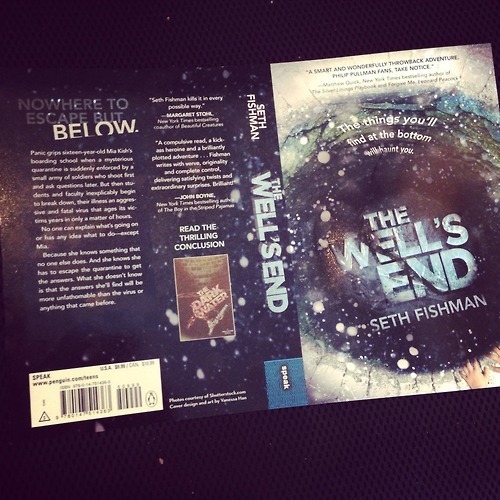
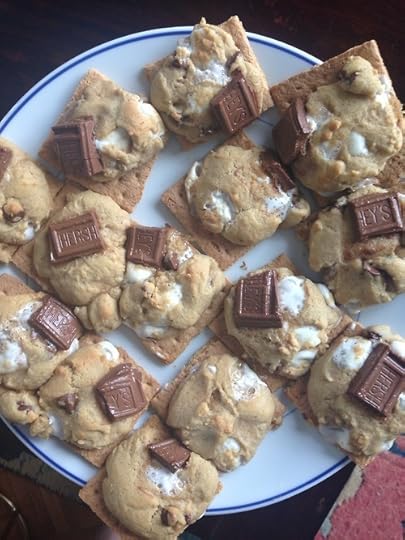
Paperback redesign and also s’more cookies cause that’s how I feel about it.
Hey maybe you saw I did promo illustrations for The Well’s End a while back? That was before it was released, and here it is with a brand new softcover, so keep a look out! The reviews are all great, don’t take my word for it, just throw it on that summer reading list.
Kate Beaton is the best.
July 14, 2014
Paperback redesign and also s’more cookies cause...


Paperback redesign and also s’more cookies cause that’s how I feel about it.

